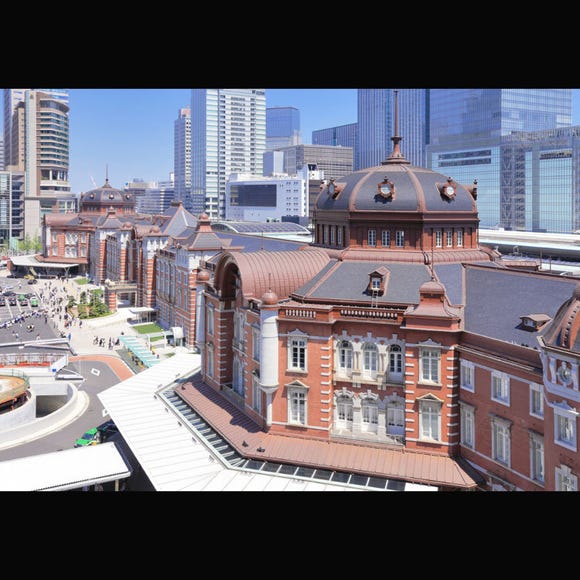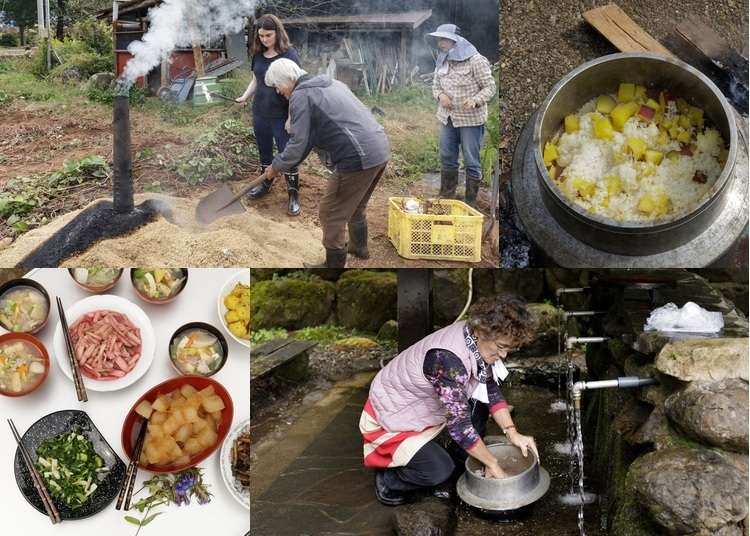
A quiet mountain district in Fukui Prefecture offers windows into both the past and future of Japan. Kawada, part of Sabae City, is a charming area with a 1,500-year-old lacquerware industry. The district is dotted with lacquerware studios where master craftspeople and promising young artisans create works that appeal to modern consumers while preserving traditional techniques. The town is also home to a unique Shinto shrine dedicated to lacquer. You'll also find a community of friendly locals eager to teach you how to prepare a filling Japanese meal - just as they did when they were children.
A cooking class unlike any other
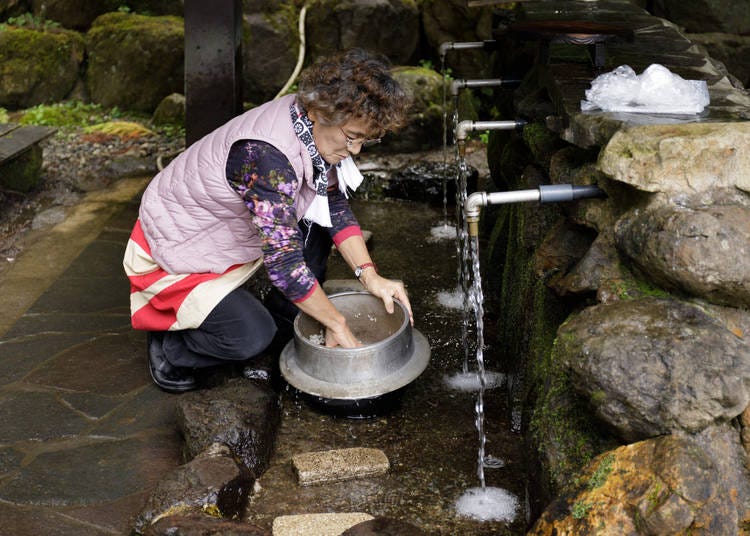
The Urara Noen Club comprises a group of friendly locals who offer a glimpse into Japan's traditional way of life. One of the "experiences" they offer school groups and other visitors is creating a hearty dinner from scratch using locally grown mountain vegetables. Club member Aiko Kimura explains: "Right now, it's an ‘experience.' But 50 years ago, this was how people actually lived. We want to keep passing this concept down to future generations." The meal centers on makidaki gohan, a delicious rice dish cooked outside in an iron pot over a small fire of cedar branches.
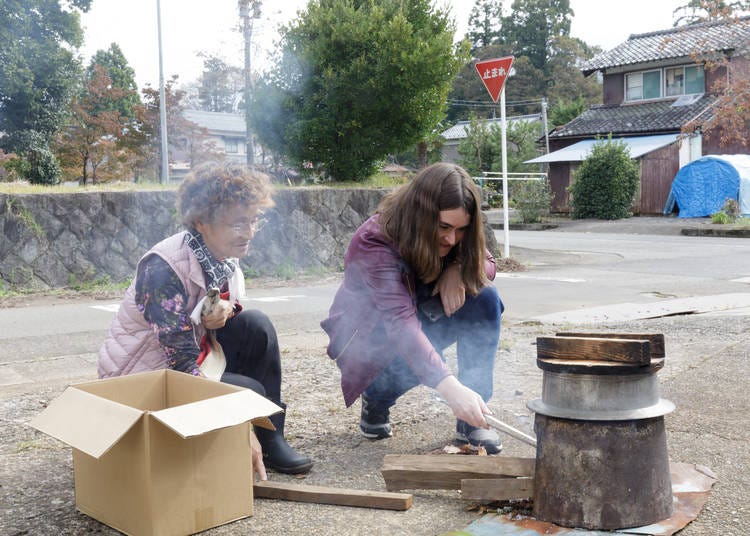
The experience begins with a trip to collect water at Togen Shozu, a natural spring known locally for the high quality of its water. When winds from the Sea of Japan collide with mountains in the region, it causes moisture to accumulate. This creates high humidity in the surrounding area, including Kawada. Perhaps contrary to expectation, high humidity is ideal for drying urushi lacquer, one of the reasons lacquerware flourishes in Kawada.After washing the rice for the meal at Togen Shozu head to the club's warehouse and farm, where Aiko will show you how to set the cedar kindling for the fire that will cook the rice.
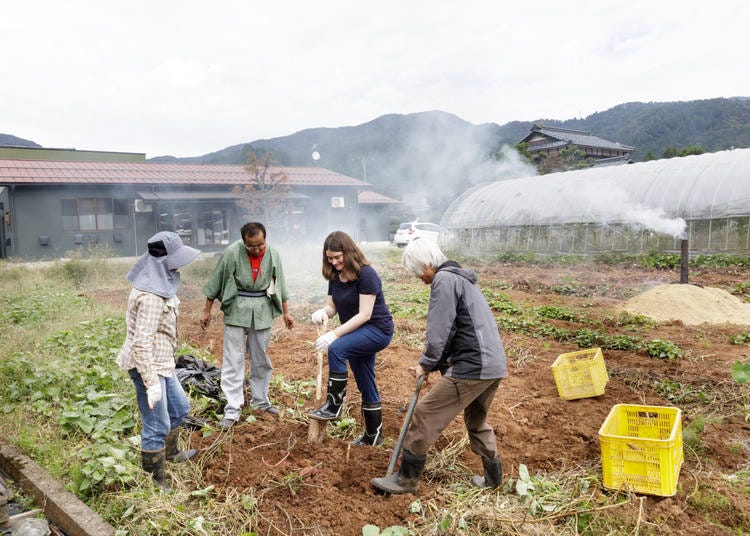
Next, it's time to dig up the sweet potatoes (don't worry - the club supplies gloves and boots). A member of the Sabae Tourism Association will be on hand to teach the basics of farming if you're a city slicker with no idea of how to dig up spuds. While you're busy with the farming, other club members begin cooking up a storm.
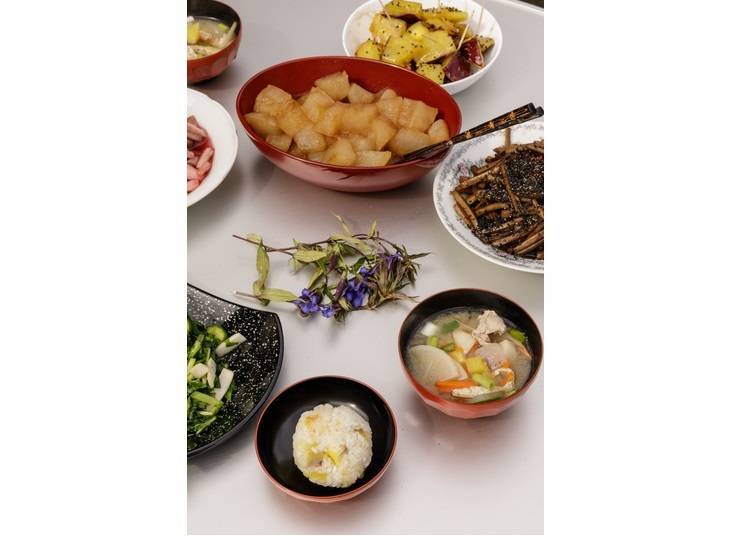
Before long, it's time for a delicious lunch of rustic food. In addition to the main dish of rice with sweet potatoes, you can savor tonjiru pork soup and a variety of other dishes made with root vegetables.
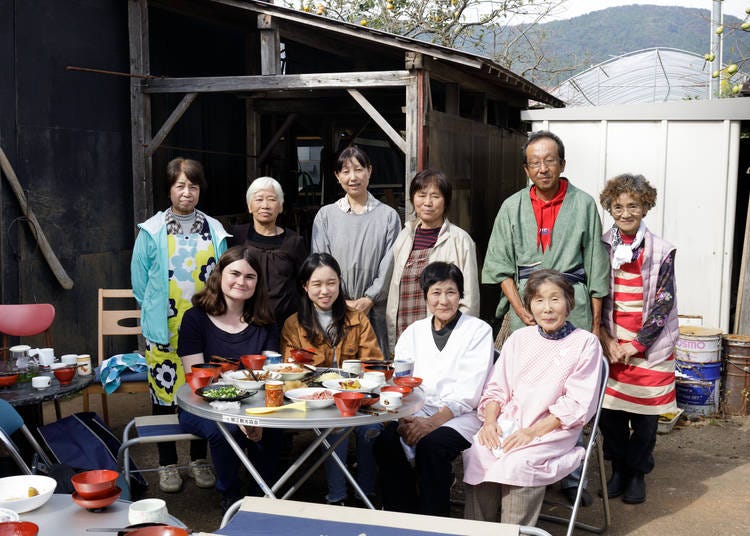
For dessert, tuck into candied sweet potatoes and fig compote paired with cups of mulberry tea, a local specialty. Be sure to try the crispy rice that cooks at the side of the pot - as with paella, that's the most delicious part.
-
Urara Noen Clubうらら農縁倶楽部
- Address 340 Kitanaka-cho, Sabae, Fukui
Program:Wood-stove rice-cooking; potato-harvesting-
Fee per person:3,000 yen (tax-included)
Dates/times:Spring through Autumn
Languages available:Basic English/Japanese
Tel:0778-52-2323 (Urushi no Sato Kawada Town Development Council)
Pray at a shrine that conceals a remarkable surprise
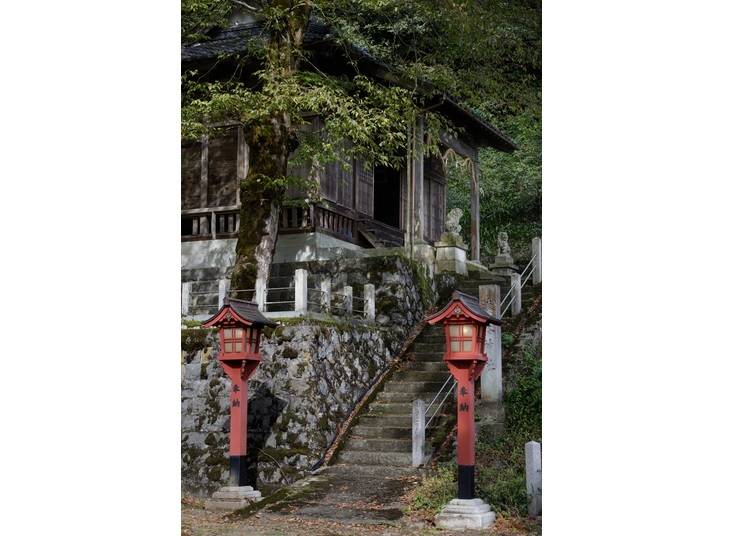
Following your whirlwind lunch packed with new flavors (and stories of the good old days), make the trip to Shikki Shrine, which sits within the grounds of Shikiyama Shrine. Here, you'll discover how religion has long been intertwined with the lacquerware industry in Japan. Indeed, it seems entirely natural for a lacquerware powerhouse like Kawada to have a shrine dedicated to lacquerware.
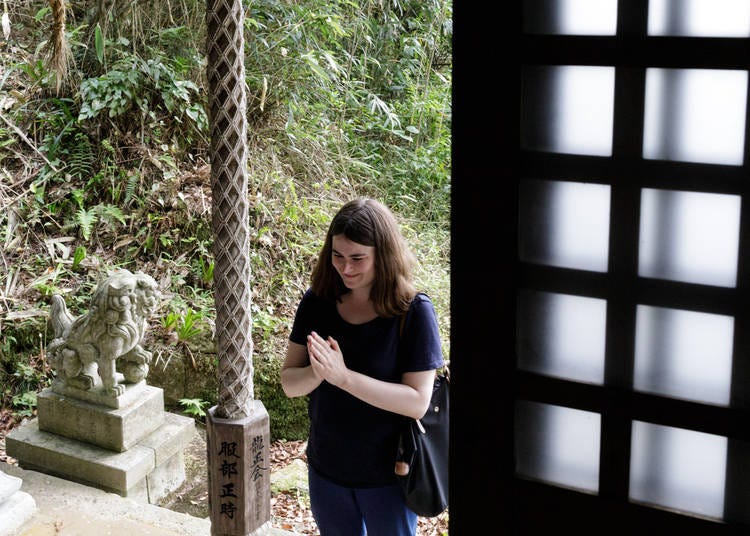
Shikki Shrine deifies Prince Koretaka Shinno as a god of lacquerware. To get his attention, bow twice, toss a coin into the collection box, clap twice, put your hands together to pray, and then bow again with your hands at your sides.
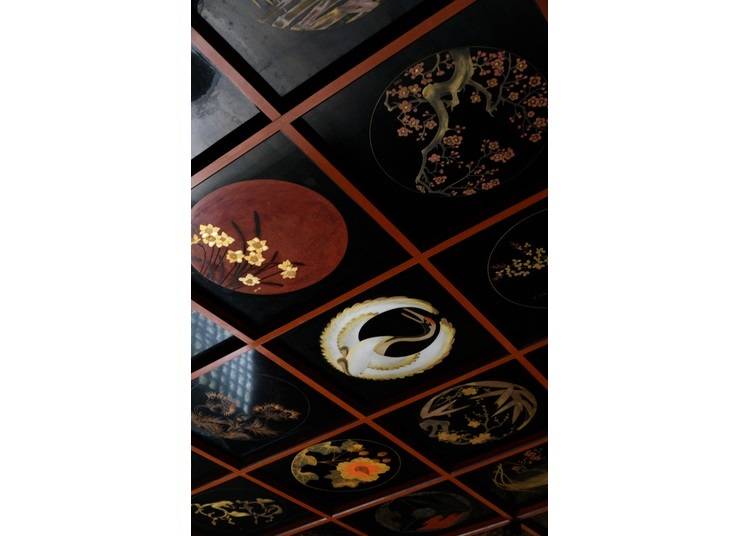
In keeping with its name, which translates as "lacquer shrine," Shikki Shrine has an eye-catching surprise waiting inside - the ceiling is covered with beautiful lacquered paintings. If you can, ask a member of the Sabae Tourism Association or the Kawada Lacquerware Chamber of Commerce to accompany you inside the shrine so you can take a better look with the lights on (visitors aren't allowed in alone).
-
Shikki Shrine (Shikiyama Shrine)漆器神社(敷山神社)
- Address Kawada-cho, Sabae, Fukui
Open:Year-round
Fee:Free
Requirements:Reservations required to Shikki Shrine ceiling
Email:info@sabae-kankou.jp (Sabae Tourism Association)
Tel:0778-52-2323(Sabae Tourism Association)
Continuing a 1,500-year-old industry in the 21st century
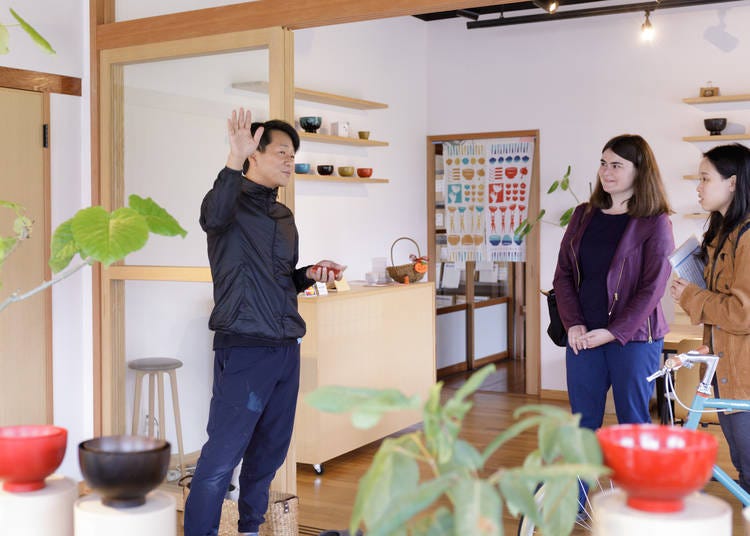
The Kawada district of Sabae City has been producing lacquerware, known as Echizen lacquerware, for 1,500 years. The Kawada area is home to many companies and studios with long histories, currently striving to introduce their products to Japan's younger generation.
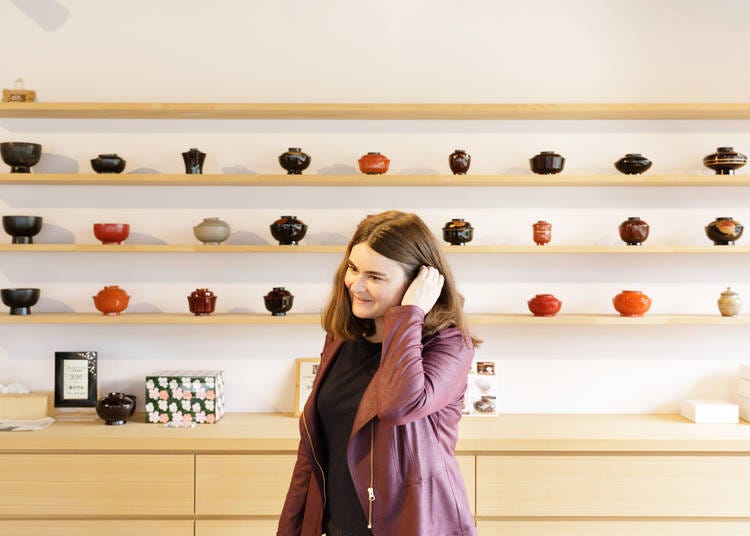
Shitsurindo is one such company. Established in 1793, the family-owned firm continues to produce beautiful items rooted in the local lacquerware culture. Shitsurindo employs new initiatives to appeal to younger consumers, including a collaboration with the trendy tokyobike company to create lacquered bicycles.
-
Shitsurindo Inc.漆琳堂
- Address 701 Nishibukuro-cho, Sabae, Fukui
Business hours:10 a.m.–5 p.m.
Closed:Sundays, public holidays
Languages available:Japanese/Basic English
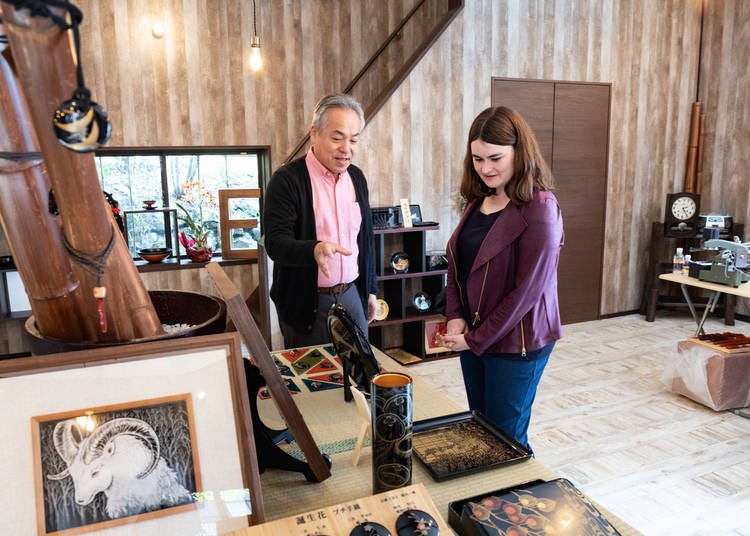
Urushi Gallery Kyuuemon, operates out of a chic, renovated, traditional Japanese house, and combines a gallery, café, and studio (not far from Shikki Shrine). The gallery, which is owned by lacquerware company Maruyama Kyuuemon Shoten, offers classical pieces in addition to some modern items that build on the company's century-plus-and-counting history.
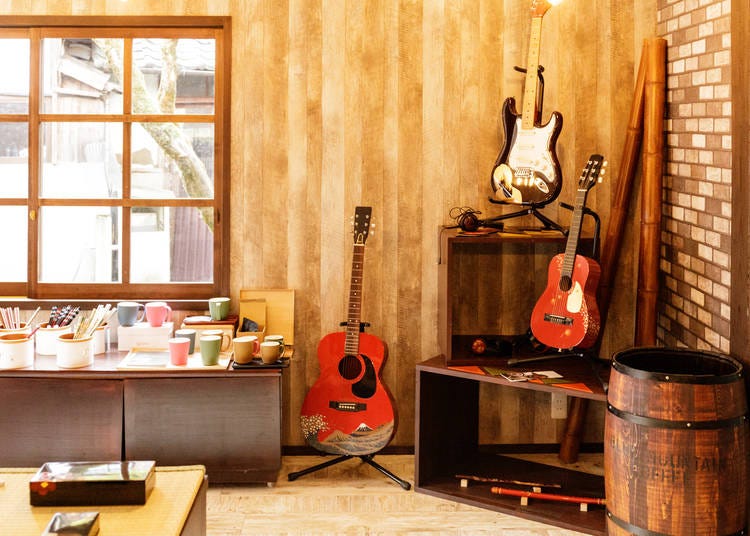
Your eye will likely be drawn to the immaculately lacquered guitars and headphones showcased in one corner; these can be custom-ordered with chinkin and maki-e decoration. After shopping, enjoy cream puffs and coffee beautifully presented on a lacquered tray in the space upstairs. And, if you're keen to delve even deeper into the world of lacquerware, sign up for the lacquer application workshop (available on demand).
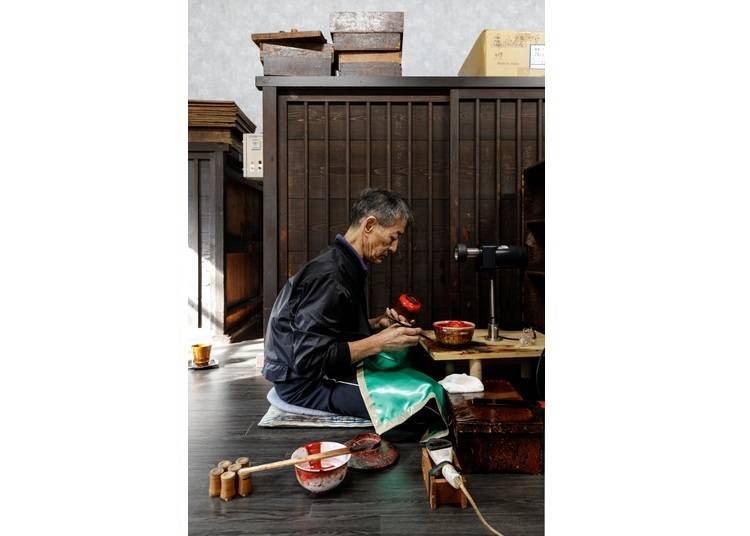
Yoichi Sugimoto creates both traditional and modern lacquered pieces. He's been applying lacquer for about half a century. "It took me years to master the lacquer-application process," he says. "My new challenge is completing custom orders. I love creating new designs that appeal to young people so the industry can continue to thrive."
-
Urushi Gallery Kyuuemon丸山久右衛門商店
- Address 21-4 Kawada-cho, Sabae, Fukui
Business hours:8:30 a.m.–6 p.m.
Closed:Saturday, Sunday, public holidays
Languages available:Basic English/Japanese
- Area
- Category
*Prices and options mentioned are subject to change.
*Unless stated otherwise, all prices include tax.
Popular Tours & Activitiess
-
Ad

What Makes Japanese Yakiniku So Darn Good? Guide to Cuts, Heat, and Wagyu Know-How
-

Top 3 OSHI MAPs for the Best Matcha and Sweets in Tokyo
by: Guest Contributor
-
Ad

The Whisper of a 1,300-Year-Old History: Meet the Other Face of Nara at Night
by: Shingo Teraoka
-
Ad

Japan’s Land of Yokai Monsters and Spooky Stories! A Deep Journey to Mysterious San’in (Tottori & Shimane) for Seasoned Travelers
-

Farewell, Heavy Suitcases! Keisei Ueno’s New Service Makes Your Last Day in Tokyo Totally Hands-Free
by: Guest Contributor
-

A New Tokyo Landmark Is Coming in 2026, and It's Built for Modern Travelers
by: Guest Contributor
-

Seiyudo Katanas: Japanese Sword Heaven in the Heart of Tokyo (Video)
-

All About Kimono: Designs, Patterns, Where (and How) To Buy!
-

Essential Tokyo: The Complete Guide to Ikebukuro Station
-

[MOVIE] Masahi Hirao’s Bonsai Performance – A Modern Take on Traditional Japanese Culture
-

Suit and Kimono: Japan’s Coming of Age Day (January 9)
-

Healthcare in Japan for Tourists: What to Do When You Get Sick or Injured in Japan
- #best ramen tokyo
- #what to buy in ameyoko
- #what to bring to japan
- #new years in tokyo
- #best izakaya shinjuku
- #things to do tokyo
- #japanese nail trends
- #what to do in odaiba
- #onsen tattoo friendly tokyo
- #daiso
- #best sushi ginza
- #japanese convenience store snacks
- #best yakiniku shibuya
- #japanese fashion culture
- #best japanese soft drinks














